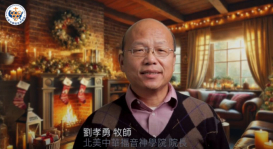The Chinese government did not officially support a meeting between its church body and house church leaders as a January report claimed it had, according to participants of the gathering.
The Times newspaper in London had reported on Jan. 26 that a “secret meeting” between Chinese officials and house church leaders marked the government’s change in attitude toward the “illegal” underground church. The newspaper also claimed that the meeting marked the first step in decades towards reconciliation between the two at-odds bodies.
The Voice of America news agency, however, reported not long after that the Dec. 1, 2008, meeting of house church leaders and non-governmental organizations (NGOs) leaders held in Beijing was not officially approved or arranged by the Chinese government.
Interviews with Chinese Christian house church representatives that attended the meeting showed that the government did not formally support the gathering, VOA asserted.
“The conference was a small internal research meeting that an NGO hosted to prepare for a research report on house church issues,” clarified Dr. Fan Yafeng, an academic of law in Beijing who organized and attended the meeting, according to VOA.
“One thing I can confirm, this meeting did not have official Chinese backing or authorization to begin a dialogue with house church leaders," he stated.
Wang Shuangyan, one of the house church leaders who attended the meeting, also affirmed that the conference was not sponsored by the government.
“Having a meeting like this is our wish; we expect to indirectly pass our opinions to the government and appeal for a legal identity for the house church,” Wang said.
“However, the government has not responded, it's true. This is our attitude: we will not give up on negotiation and legal identity. Nevertheless, we put our trust and hope in God. Therefore, no matter what circumstance, good or bad, to us we are still free within," she said.
One of the organizers, who requested to remain anonymous, said the NGOs are, however, trying to deliver the ideas from the meeting to the Chinese government. They hope that by hearing what was discussed, the government can better understand house churches.
Though China’s constitution states that citizens have freedom of religion, in practice, the right to worship is restricted to religious institutions approved by the government. Protestant Christians can only legally worship in churches registered with the government’s Three-Self Patriotic Movement (TSPM).
There are anywhere from tens of millions to as high as 100 million Protestant Christians who refuse to worship in government-sanctioned churches. These “underground” or “house church” Christians are far greater in number than their counterparts who worship in registered churches.
House church Christians are frequently persecuted by officials of China’s Public Security Bureau (PSB), who raid homes during worship service, arrest, fine, imprison and sometimes torture believers.
Despite continual problems, China has, however, made progress in its religious freedom in recent years.
The U.S. State Department removed China from its human rights blacklist last March, and Open Doors dropped China from its top 10 list of the worst Christian persecutors.
China ranks No. 12 in the 2009 Open Doors World Watch List, down from No. 10 in 2008.




![[Exclusive Interview] A revelation within the brink of life and death — Meg Leung’s mission in Christian art](https://www.gospelherald.com/media/cache/thumbnail/7/21/72163sp_273w_150h_1x_1y.jpg)


